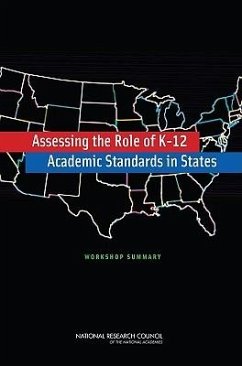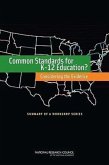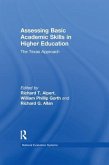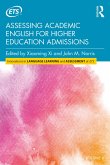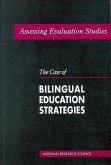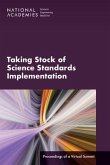Every state in the United States, the District of Columbia, and the Department of Defense Education Activity now has its own academic standards, at least in core subjects. These documents vary in their structure, level of specificity, and other characteristics. Professional societies have also developed standards, in mathematics, English language arts, science, social studies, civics, foreign languages, and other academic subjects, and many states have drawn on these as they prepared their own standards documents. Other organizations have also offered standards and benchmarks. For example, the Mid-continent Research for Education and Learning (McREL) offers standards developed with the goal of applying a consistent structure and degree of rigor and specificity to standards in diverse subjects. This abundance of standards reflects a vigorous response to the call for high standards articulated in the National Commission on Excellence in Education's 1983 report A Nation at Risk, and it also poses a variety of questions for educators, policy makers, and the public. What role are these standards playing? What are the strengths and weaknesses of the reform efforts that have been anchored by these standards? How are these standards applied, and how might standards-based reforms be improved? Would a move toward national standards in core academic subjects lead to improved instruction and learning? Would it be feasible? The committee identified three components to the charge for the first workshop: a review of the policy and research context in which current standards-based reform efforts are operating, a consideration of how the costs of standards and accountability systems might be calculated, and an analysis of similarities and differences among states' content and performance standards. Assessing the Role of K-12 Academic Standards in States: Workshop Summary summarizes this workshop and the committee's recommendations.
Hinweis: Dieser Artikel kann nur an eine deutsche Lieferadresse ausgeliefert werden.
Hinweis: Dieser Artikel kann nur an eine deutsche Lieferadresse ausgeliefert werden.

